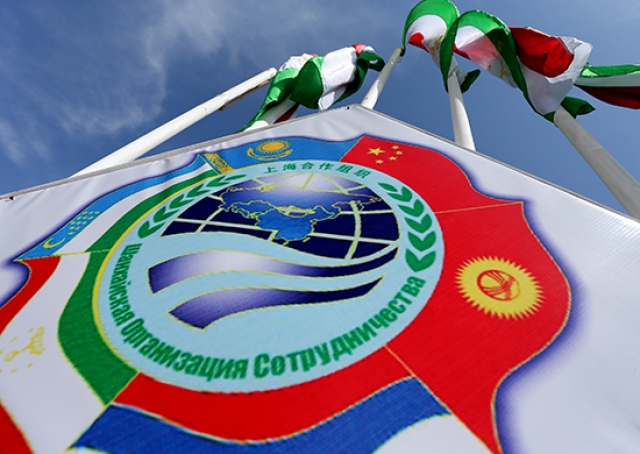
Alexander Pasechnik, Head of the Analytical, Department of the National Energy Security Fund
In mid-September, Samarkand (Uzbekistan) hosted the summit of the Shanghai Cooperation Organization (SCO). The summit discussed a wide range of issues and initiatives in the field of geopolitics, the world economy, global food and energy security. The central event of the two-day (September 15-16) program of the event was the meeting of the Council of Heads of SCO Member States, following which the Samarkand Declaration was adopted and promulgated. The agenda of the summit also included numerous high-level meetings.
In the negotiating “marathon” of the Russian leader Vladimir Putin with many heads of the SCO member states (primarily China, India and Pakistan) and the organization’s partner states, the dialogue mainly discussed the prospects for increasing energy cooperation. In particular, these are the issues of switching to national currencies in settlements with buyers of Russian energy resources, the development of large infrastructure projects for the transportation of hydrocarbons (Power of Siberia 2, Soyuz Vostok, Pakistan Stream).
Under the current conditions, Russia needs to expand alternative channels for gas supplies to Europe. Therefore, the summit in Samarkand was supposed to show the acceleration, first of all, of the “pipeline” turn to the East. Although the expected contract with China for the Power of Siberia 2 project was not signed, Russian Deputy Prime Minister Alexander Novak said in an interview with Russia 1 that this would happen “in the near future.” (So far, since December 2019, main gas from the Russian Federation has been supplied to the Celestial Empire through the Power of Siberia system; by the end of 2022, pumping is expected in the amount of about 20 billion cubic meters, which will exceed half of the pipeline’s design capacity of 38 billion cubic meters).
Other projects, such as the construction of gas pipelines to Pakistan and India, are even more complex and are at the initial stage of discussion and development. Even routes are not concretized yet. The pipe can pass both through the territory of Afghanistan and Iran. However, the political risks of such transit corridors are quite high.
During the summit, the Russian President stated that pipeline gas supplies from Russia to Pakistan are possible if the issue of political stability in Afghanistan is resolved, and stressed that part of the infrastructure for this has already been created in Russia, Kazakhstan and Uzbekistan. “Of course, there are problems related to political stability, but bearing in mind our mutually good relations with the Afghan people, I hope that this problem can also be solved: I mean Pakistan’s influence on the situation in this country,” Vladimir Putin said at the meeting with Pakistani Prime Minister Shahbaz Sharif.
The Russian leader also stressed that Moscow and Islamabad have other promising and large-scale projects in the energy sector, recalling the Pakistan Stream pipeline project, which involves the supply of liquefied natural gas (LNG) to load the pipeline system.
Pakistan’s gas market is very promising – the state is included in the pool of Asian countries, where the consumption of “blue fuel” is growing especially rapidly. However, Pakistan’s offshore terminals are far removed from Russian LNG production centers. To compete successfully with other suppliers (Qatar, Malaysia, Algeria, Oman, Egypt, Australia), NOVATEK and Gazprom will likely have to make full use of market pricing methods for their products.
Pakistan meets only about 25% of its gas demand from LNG imports, with domestic gas production declining in recent years, making LNG supply even more important. At the end of March, the republican press reported that Pakistan LNG Limited was in talks with Gazprom and NOVATEK on gas imports.
The strategic bet on SCO members and adherents is especially relevant for Russia in the current realities, when a pool of unfriendly countries unceremoniously increases anti-Russian propaganda and sanctions pressure, especially on the “hydrocarbon” segment.
An important political outcome of the summit was the signing of a declaration on the launch of the procedure for Iran’s inclusion in the SCO. What was welcomed by the President of the Russian Federation Vladimir Putin. For Russia, Iran is a long-standing political and geopolitical partner. Moscow is ready to continue sending business delegations to Tehran — it is important to adopt the experience of an oil and gas country that has been “living” under Western restrictions for decades to adapt to sanctions. Although we should not forget that Iran is also a serious competitor of the Russian Federation in the global energy field.
The Shanghai Cooperation Organization aims to continue to progress in expanding “energy interaction”: following the summit, the pool of partners in the association’s dialogue was replenished with three oil and gas exporting countries at once – these are Saudi Arabia, Qatar and Egypt.
The next SCO summit is planned to be held in 2023 in India, which has taken over the chairmanship.

Location: 103 Kurortniy Prospekt, Sochi, Russia. The Radisson Lazurnaya Hotel
There must be time
Here are the terms of participation
Comments
0